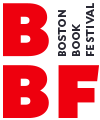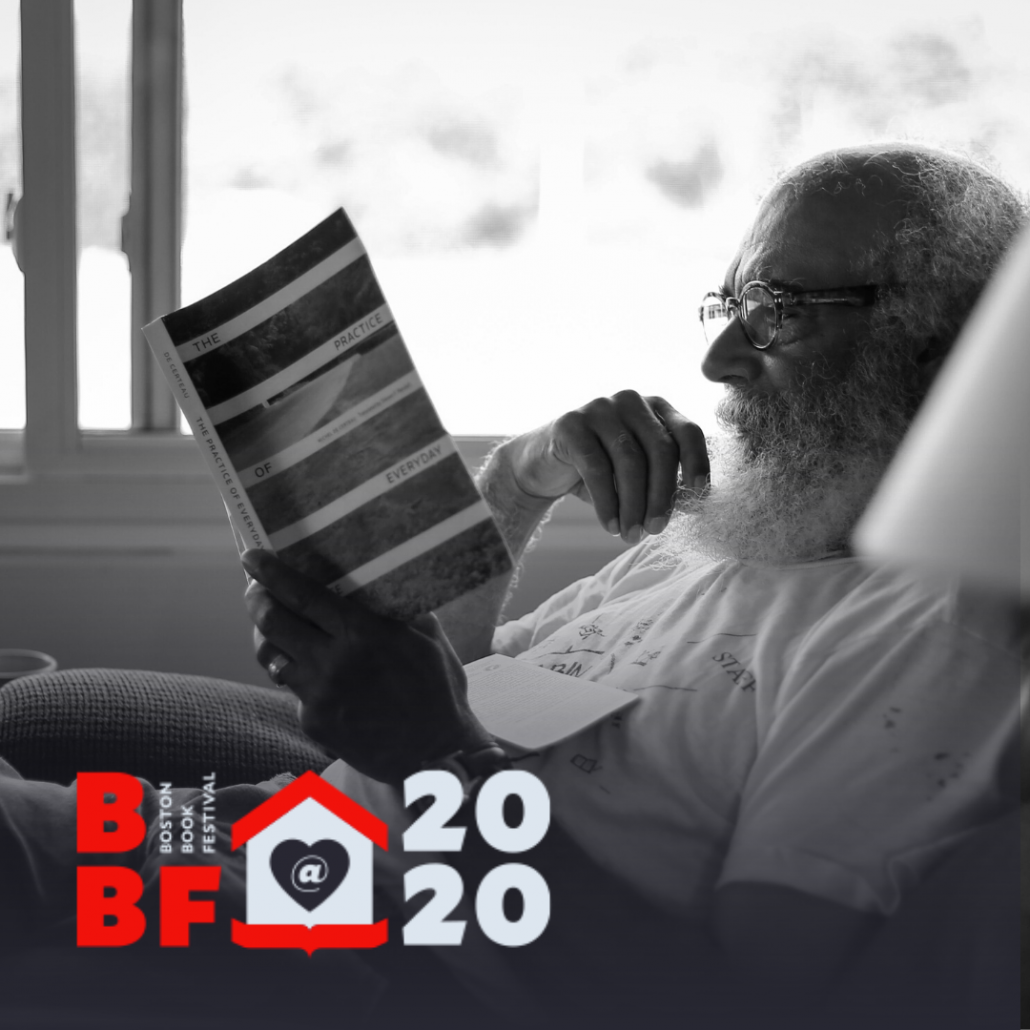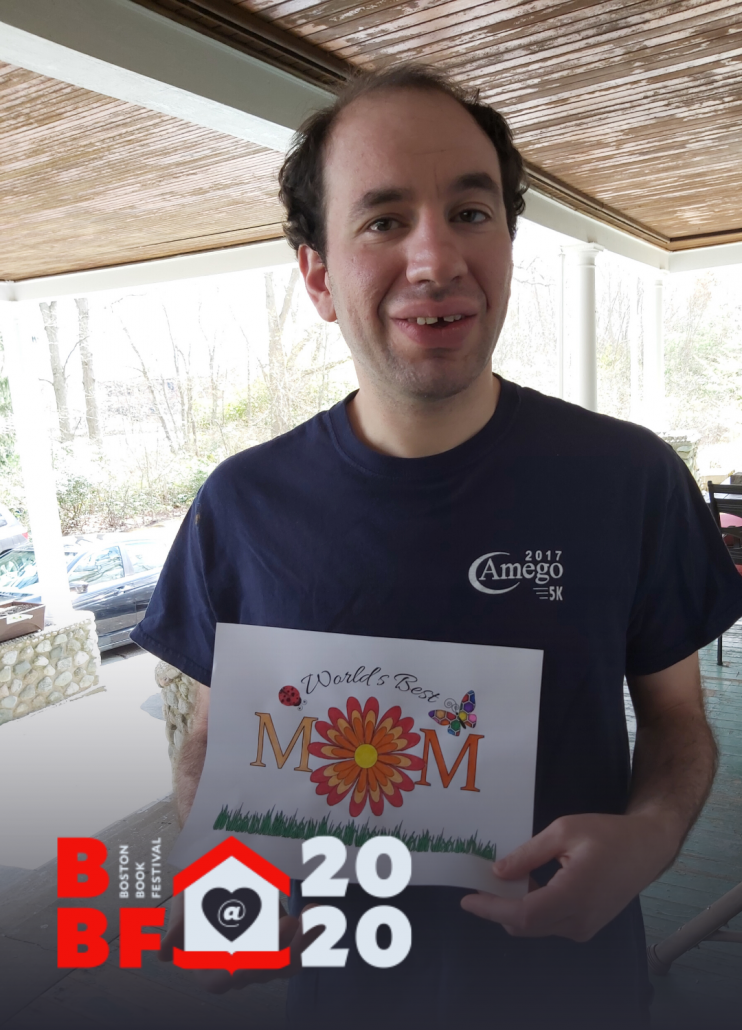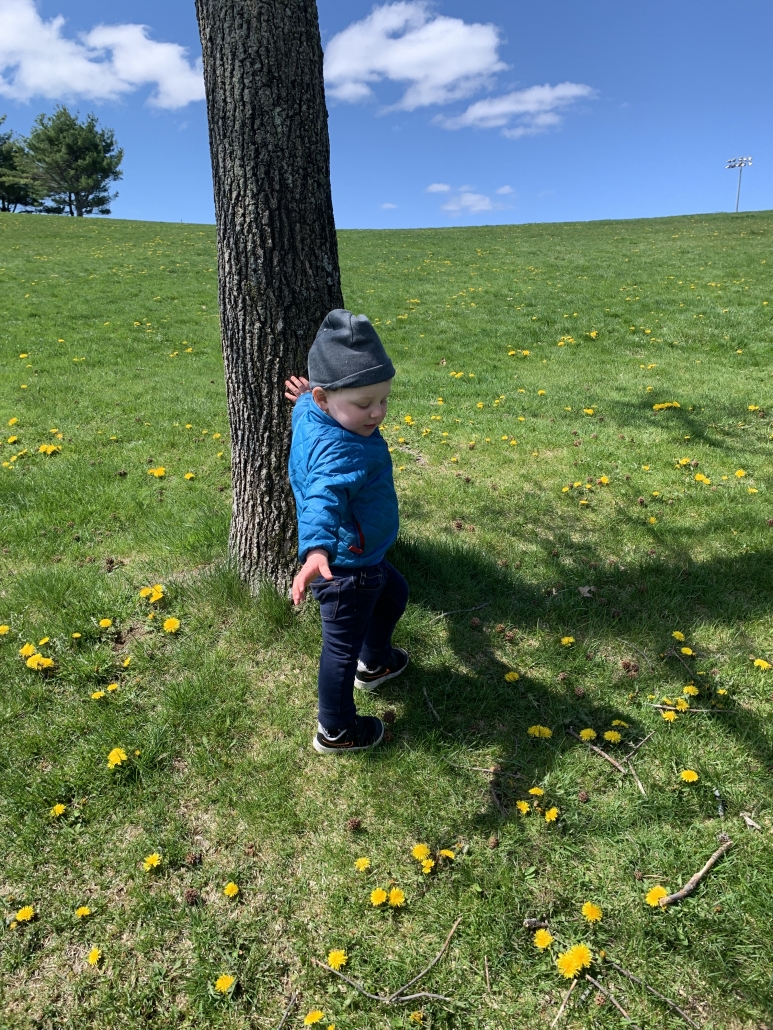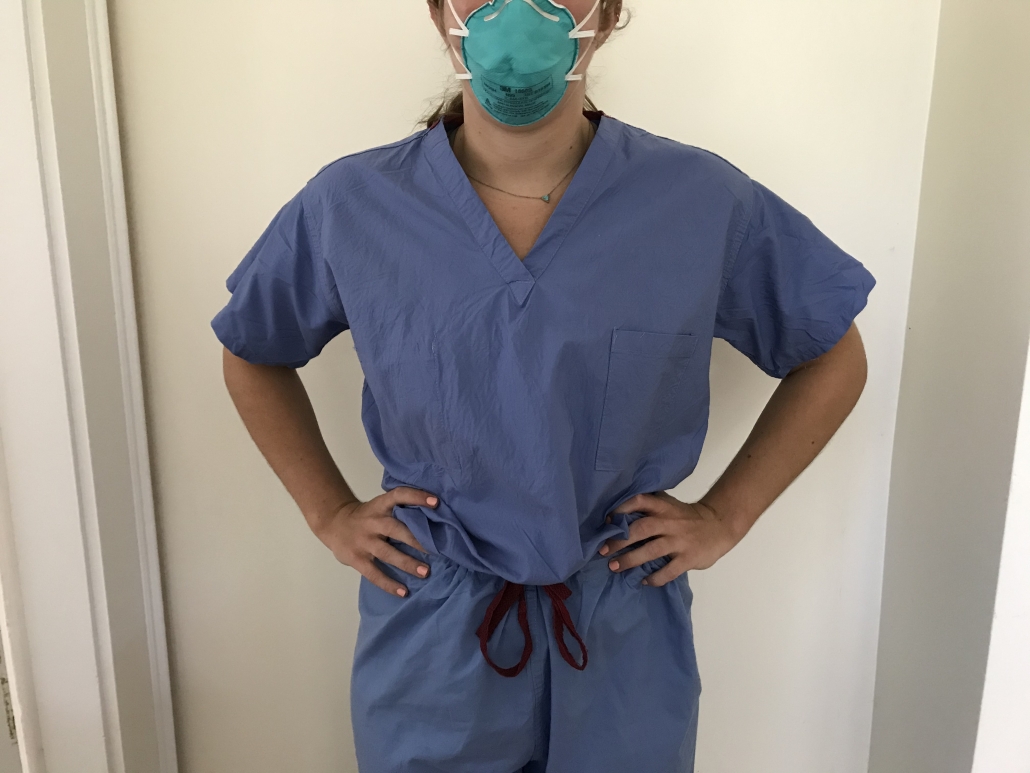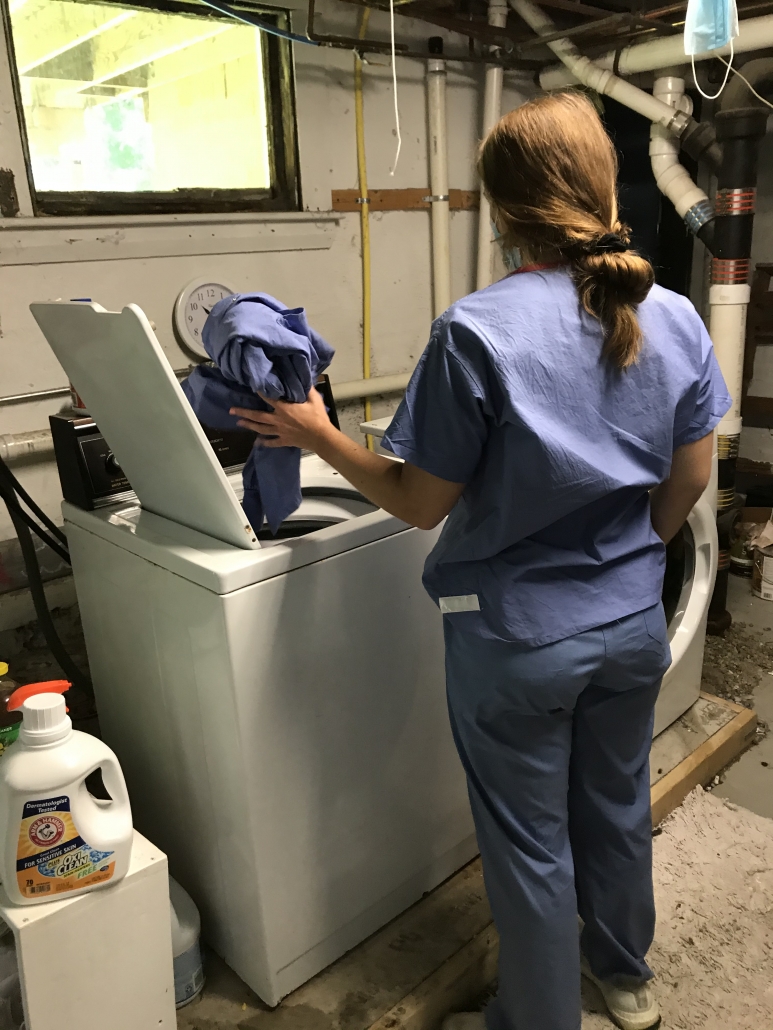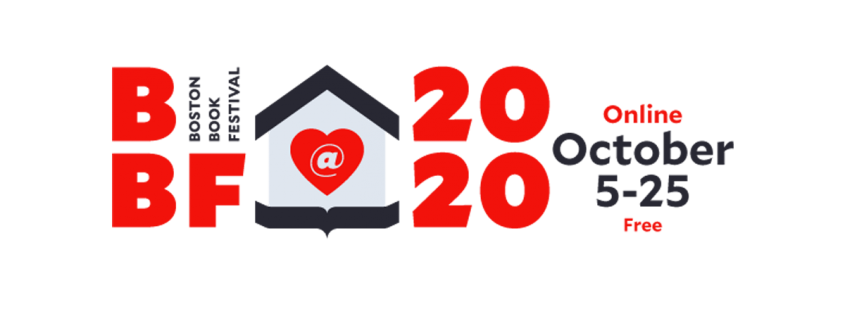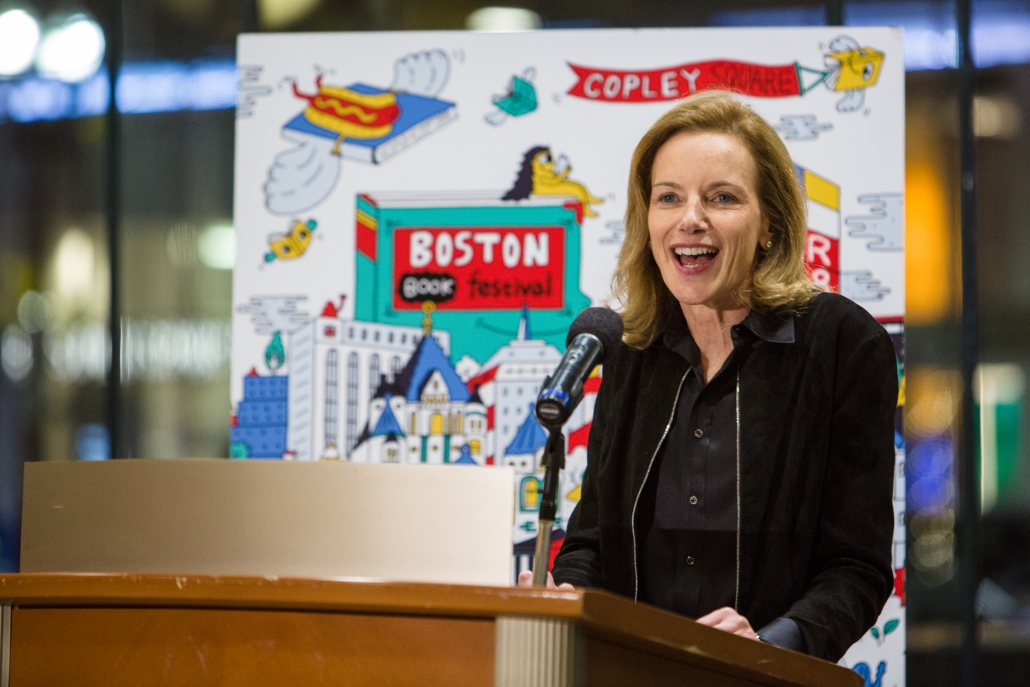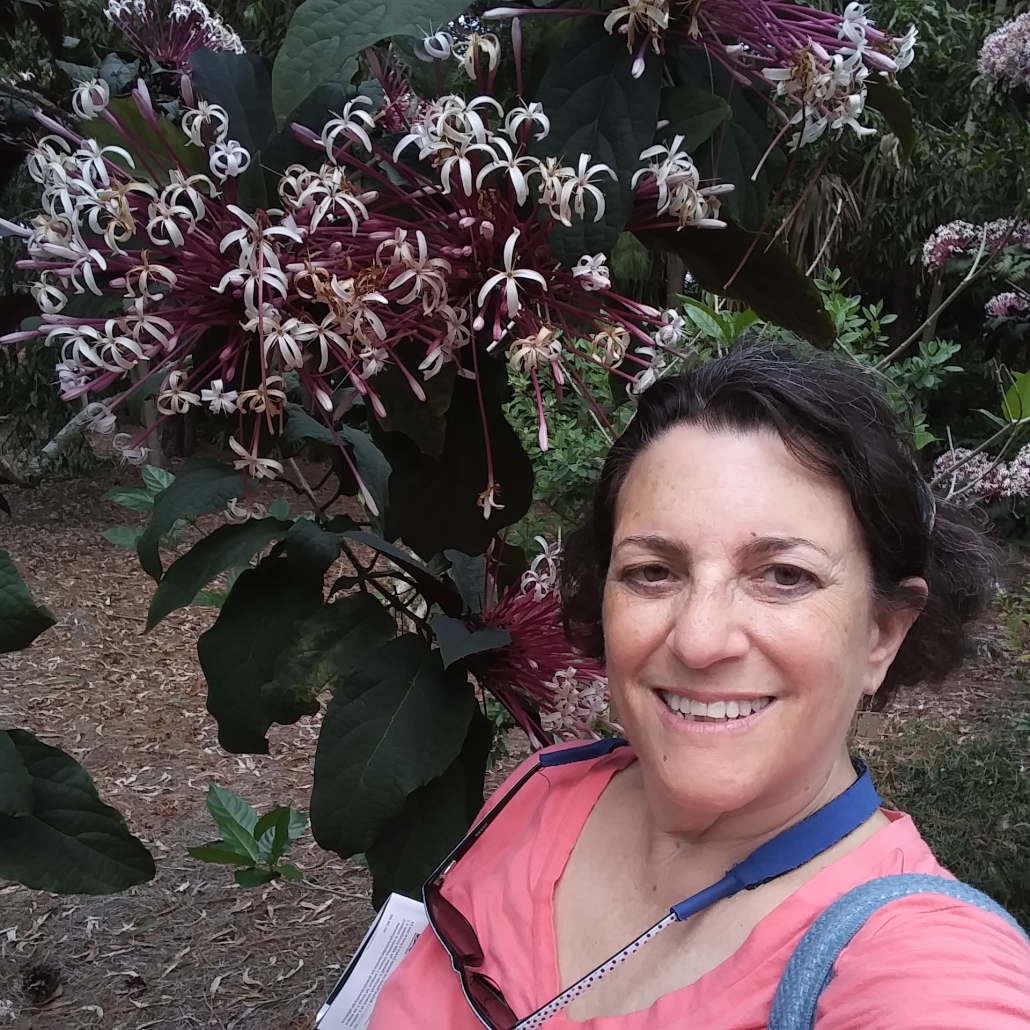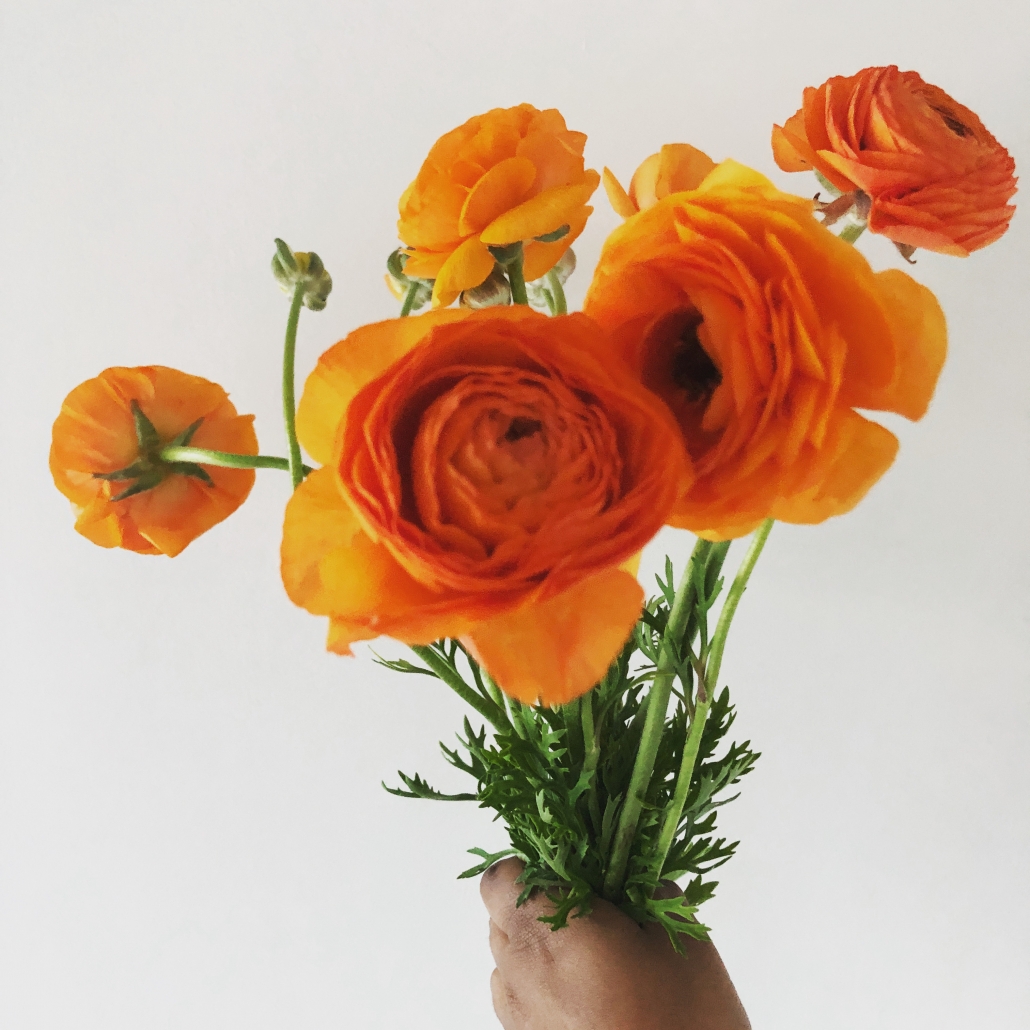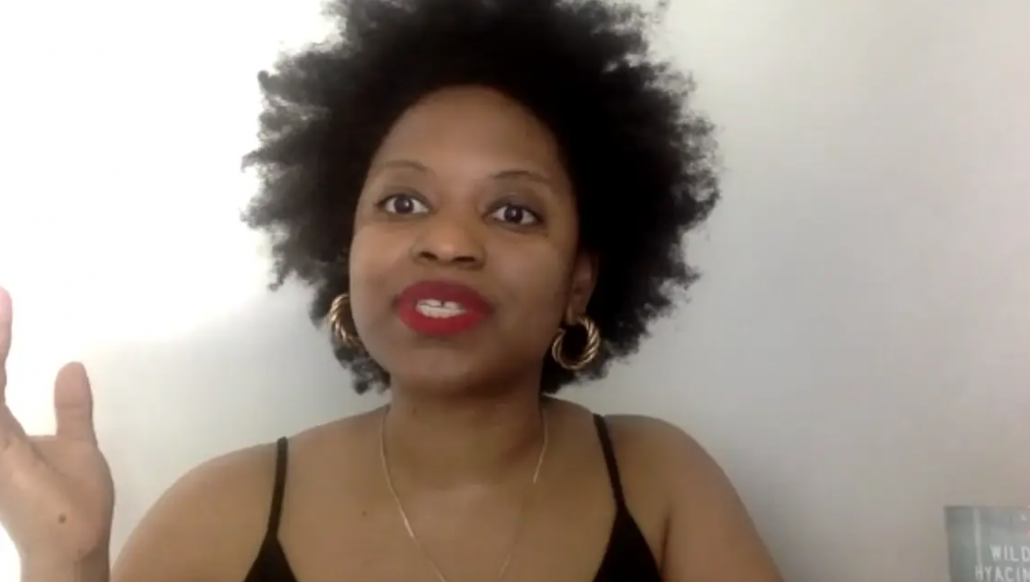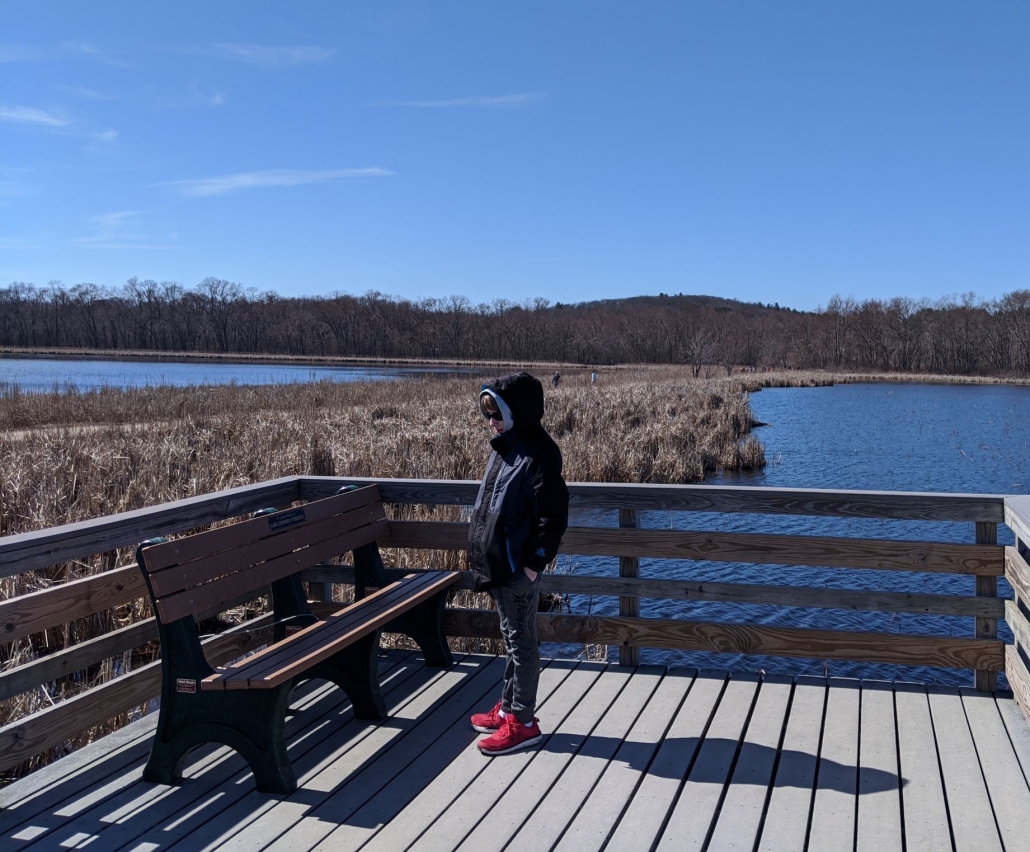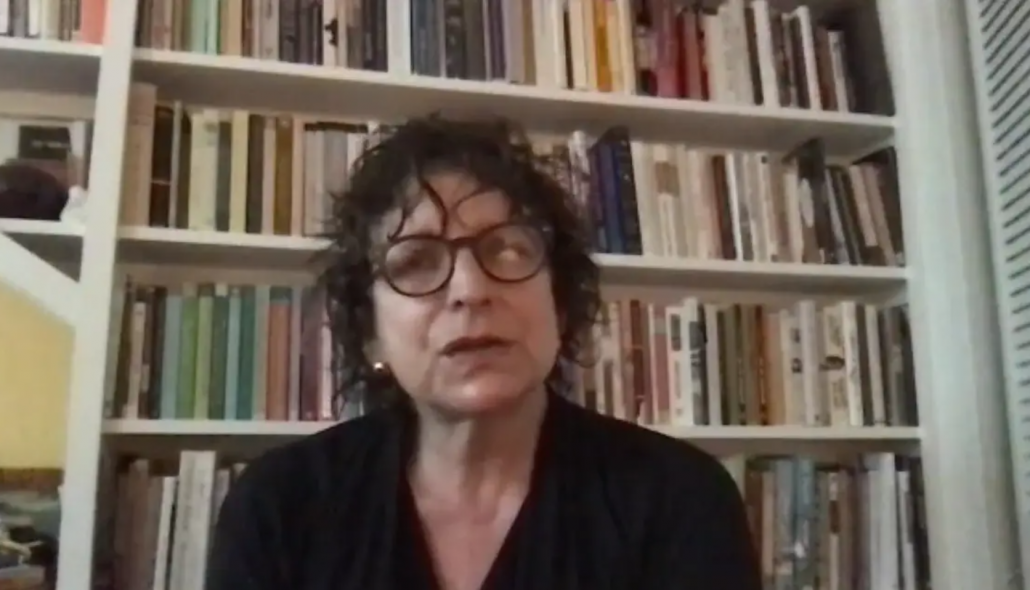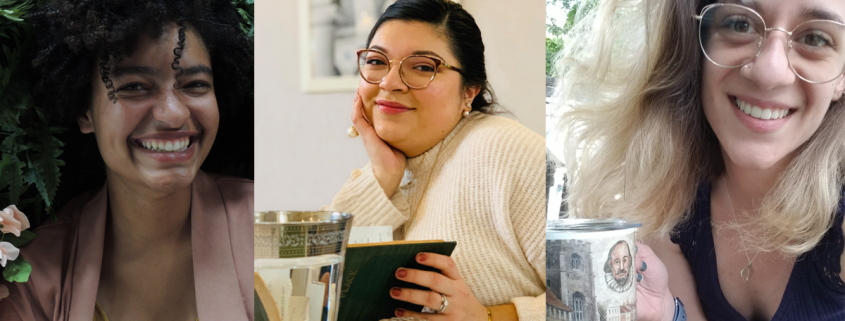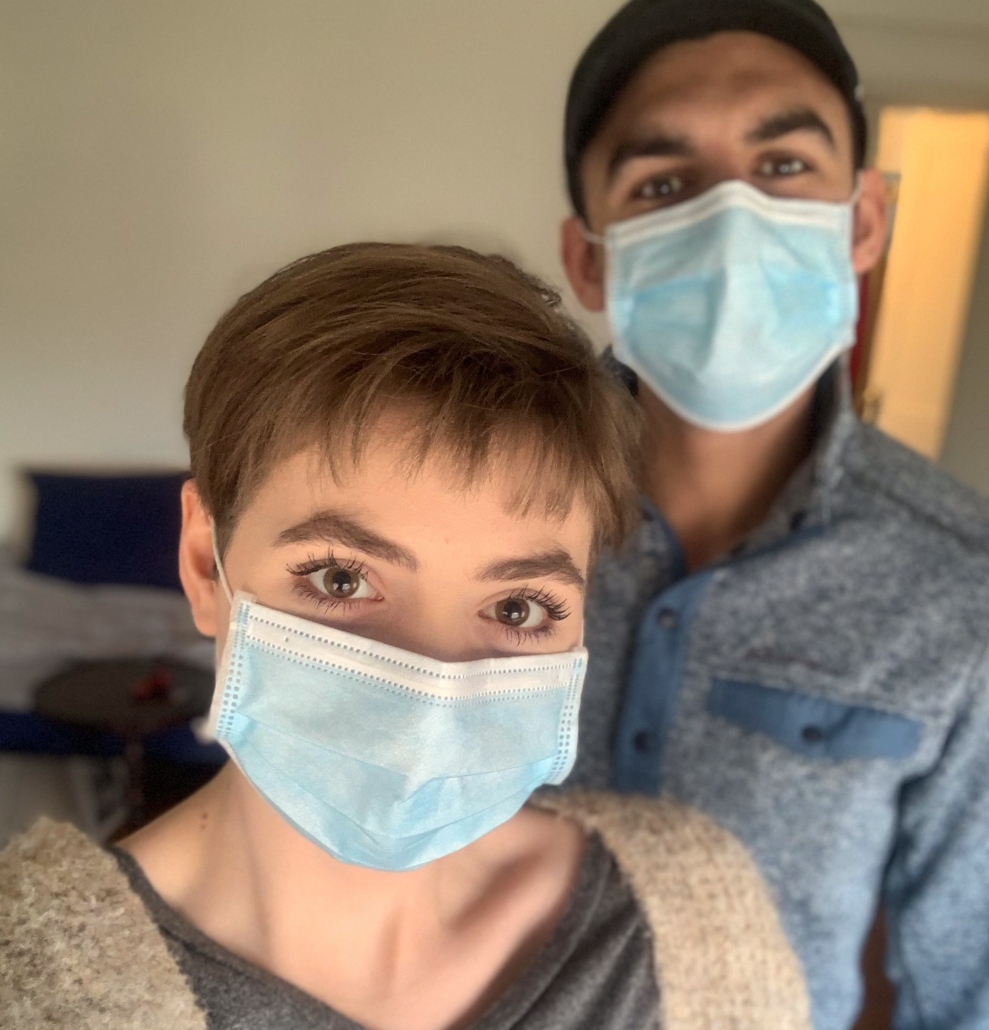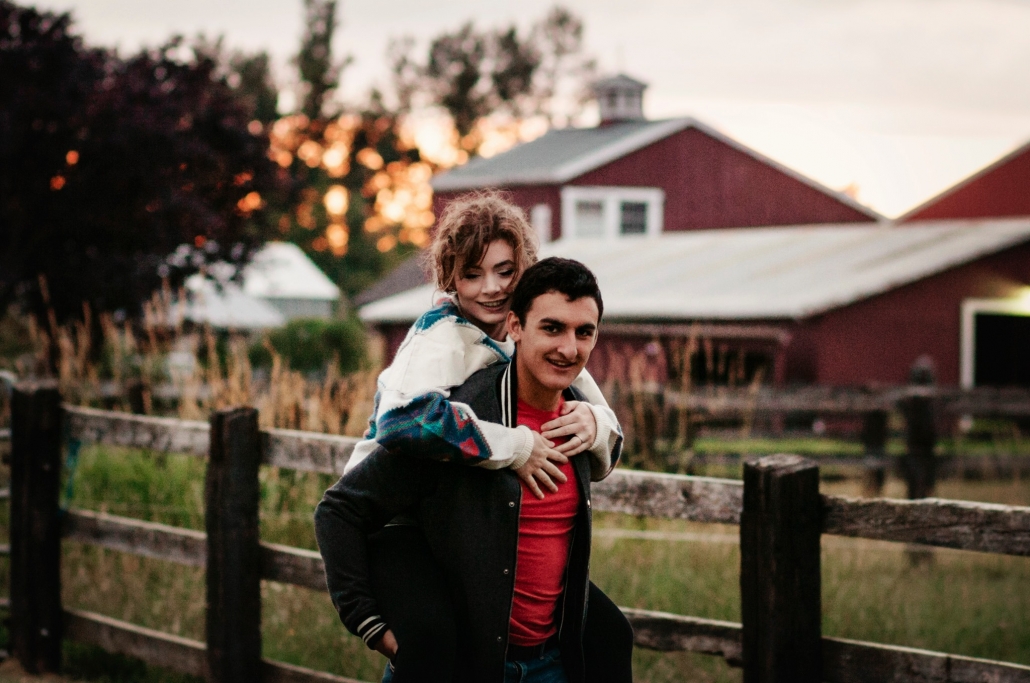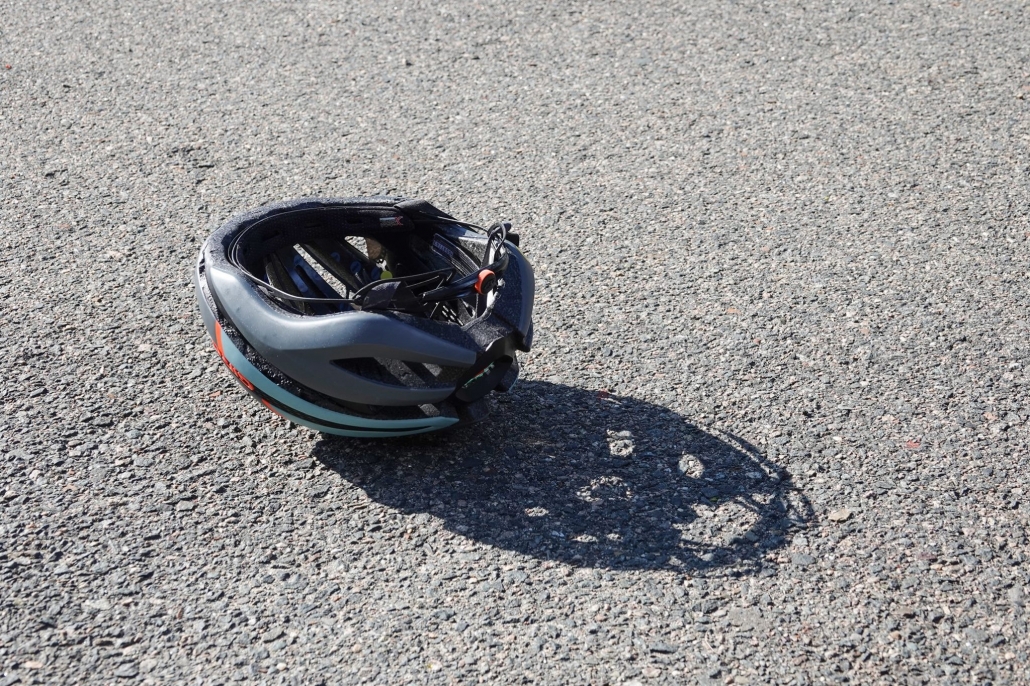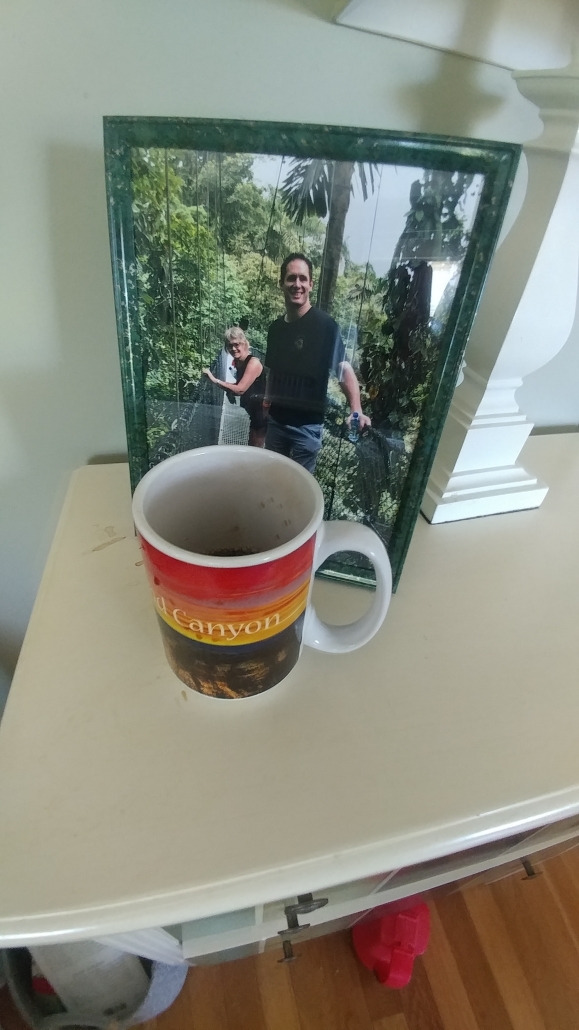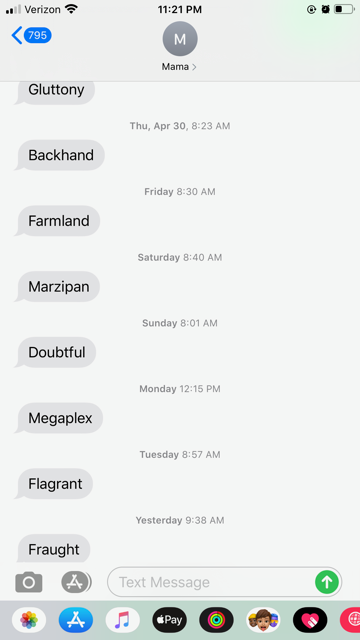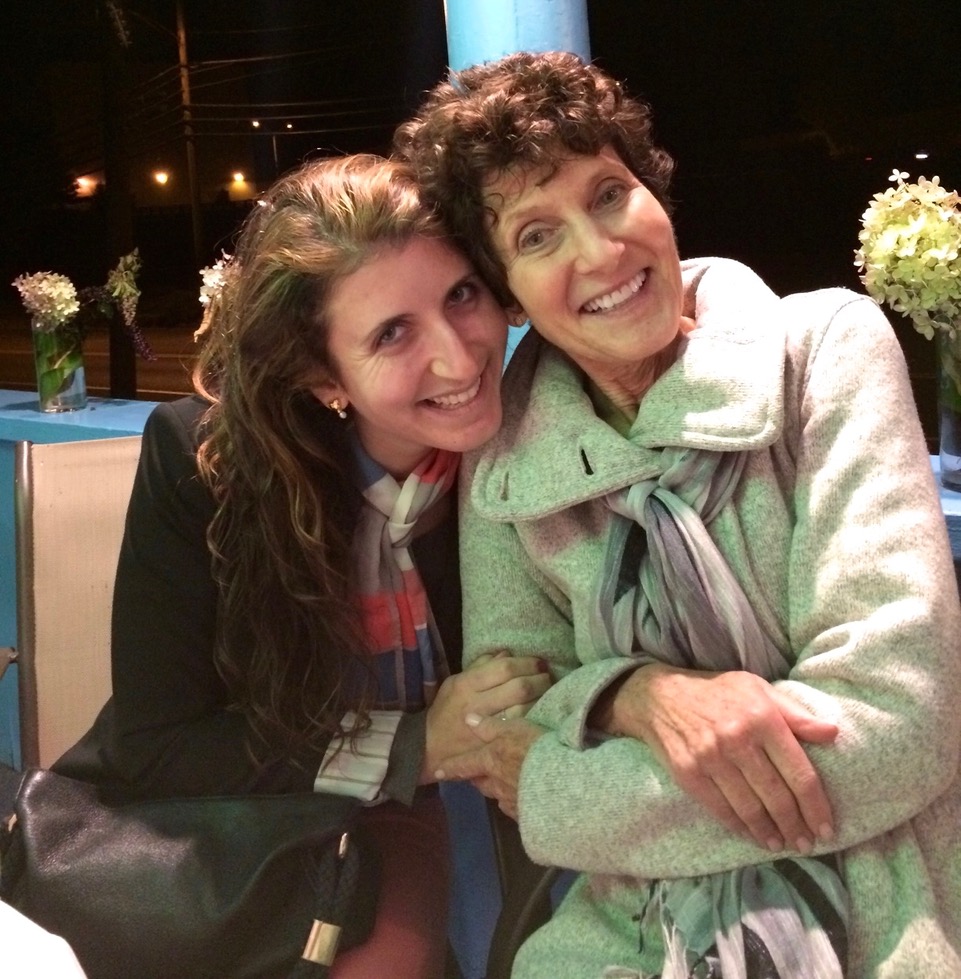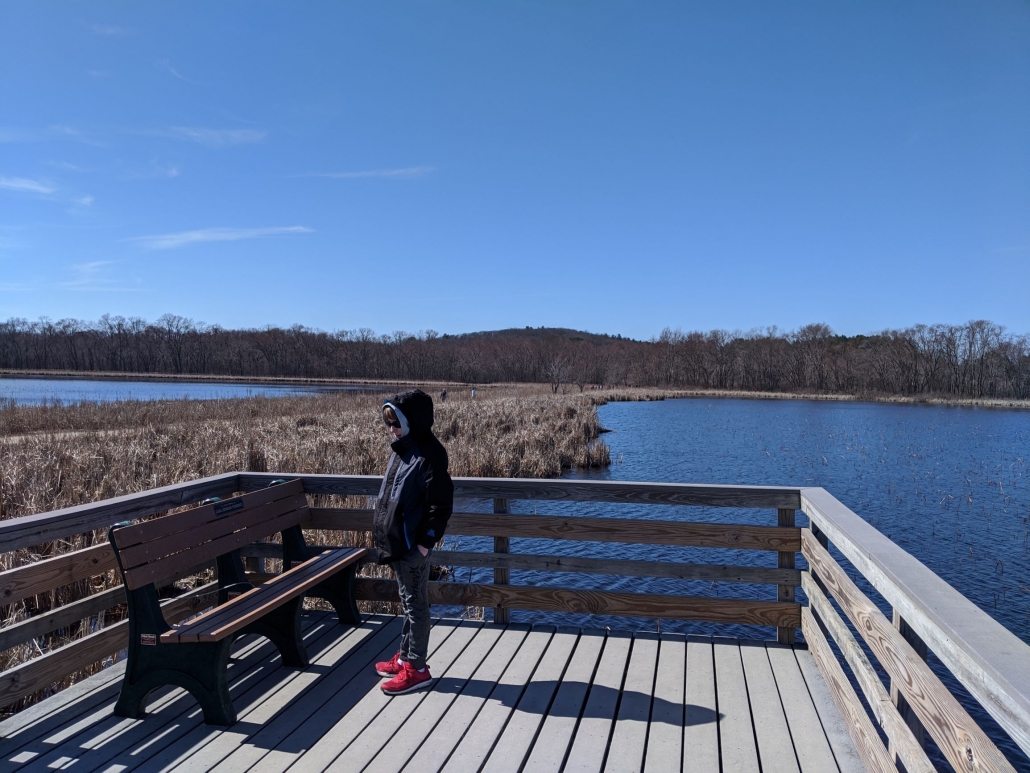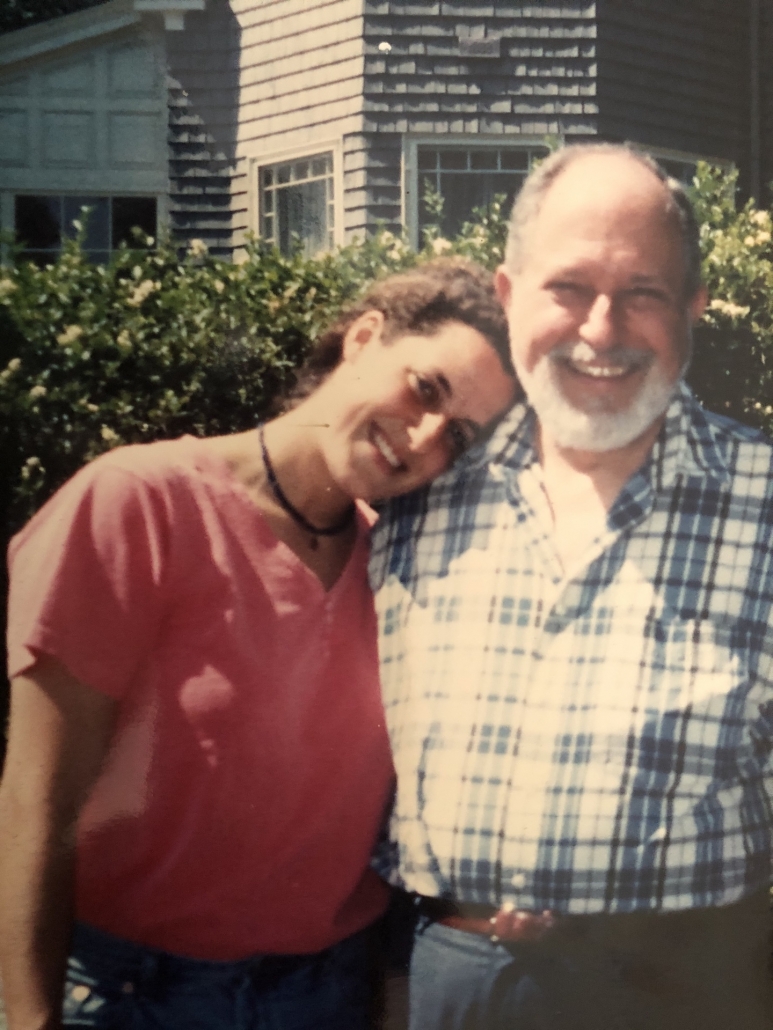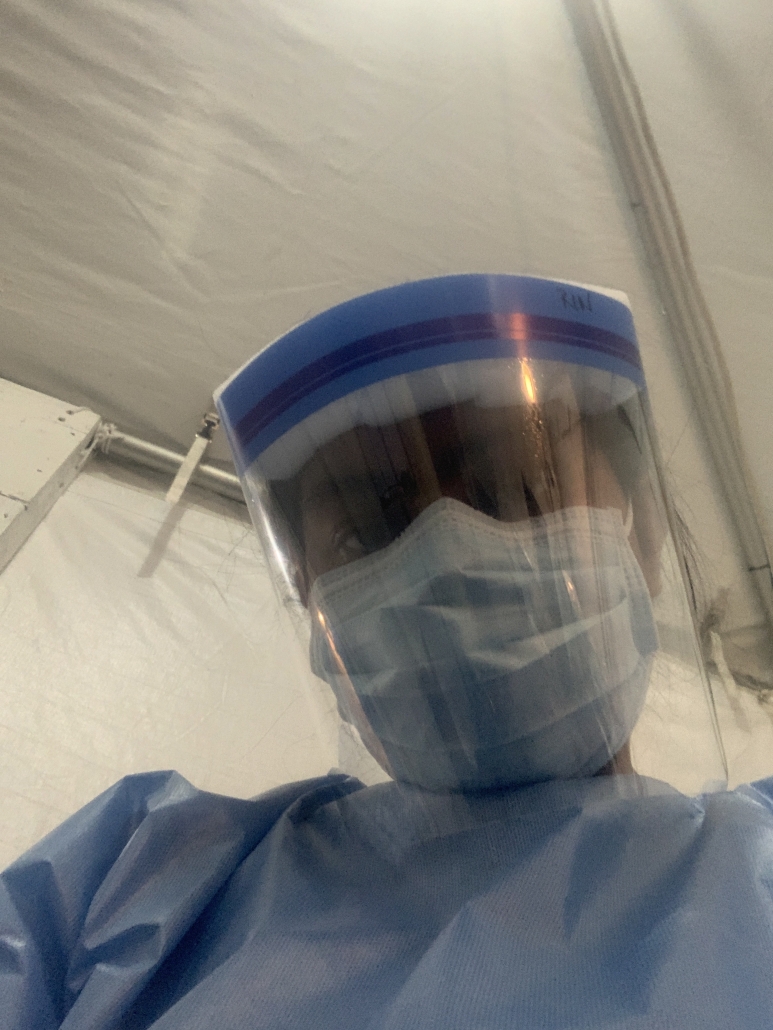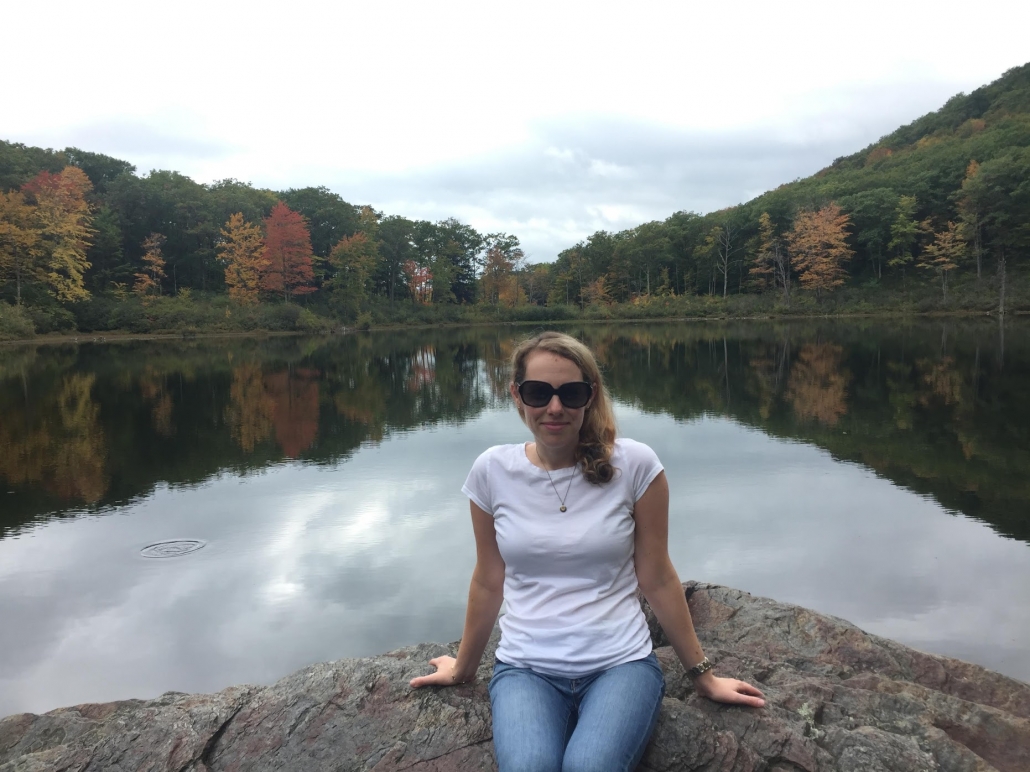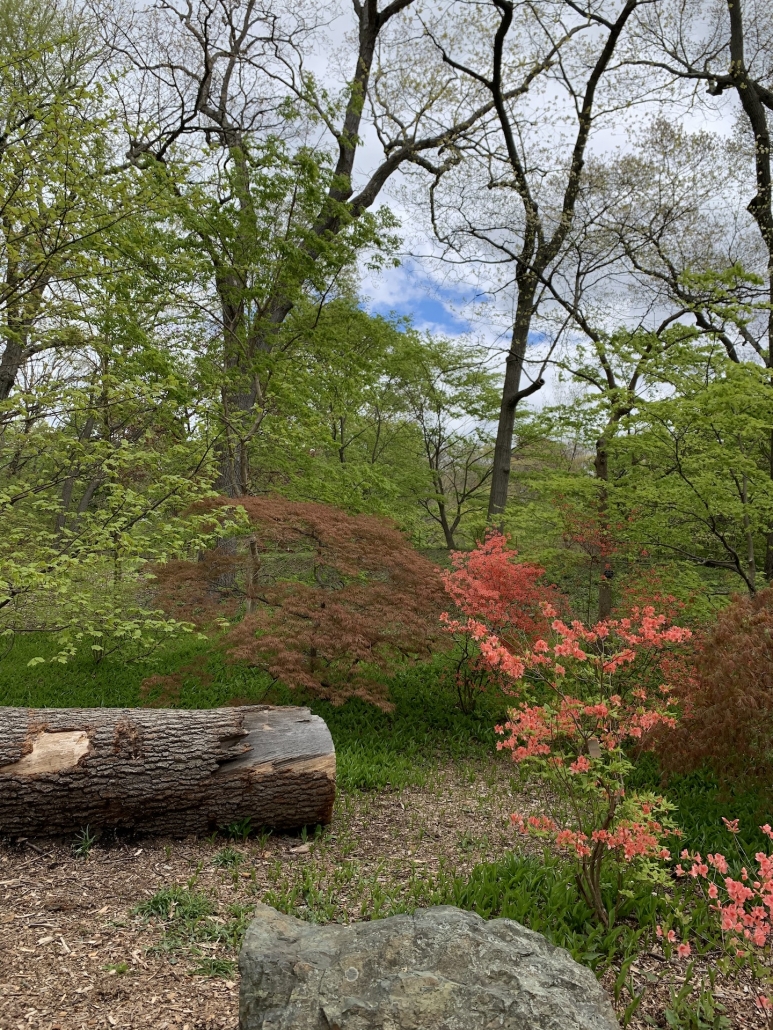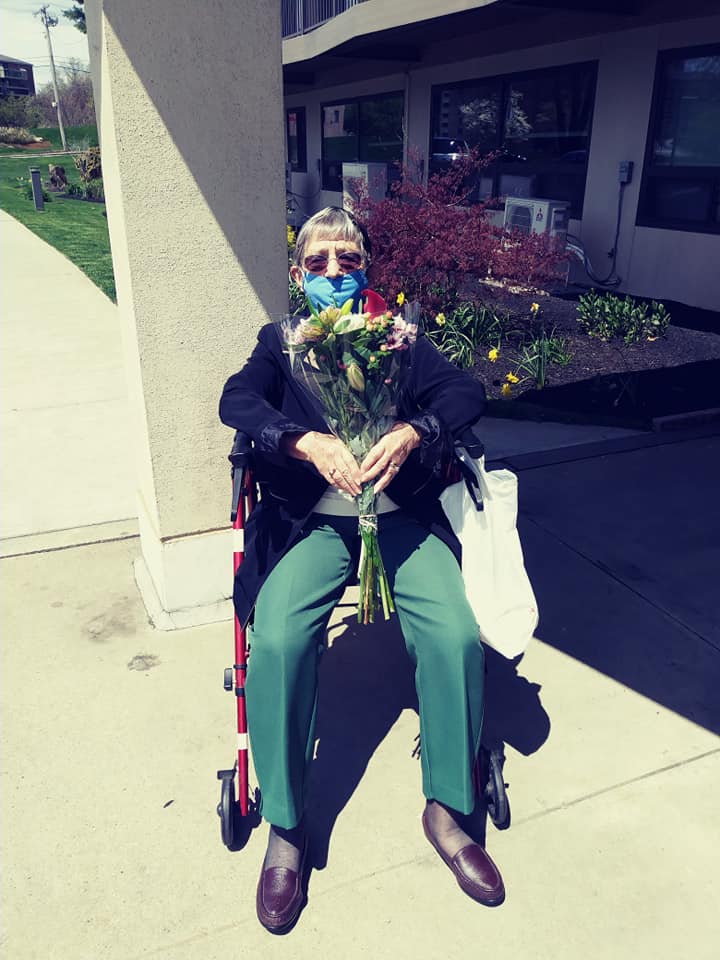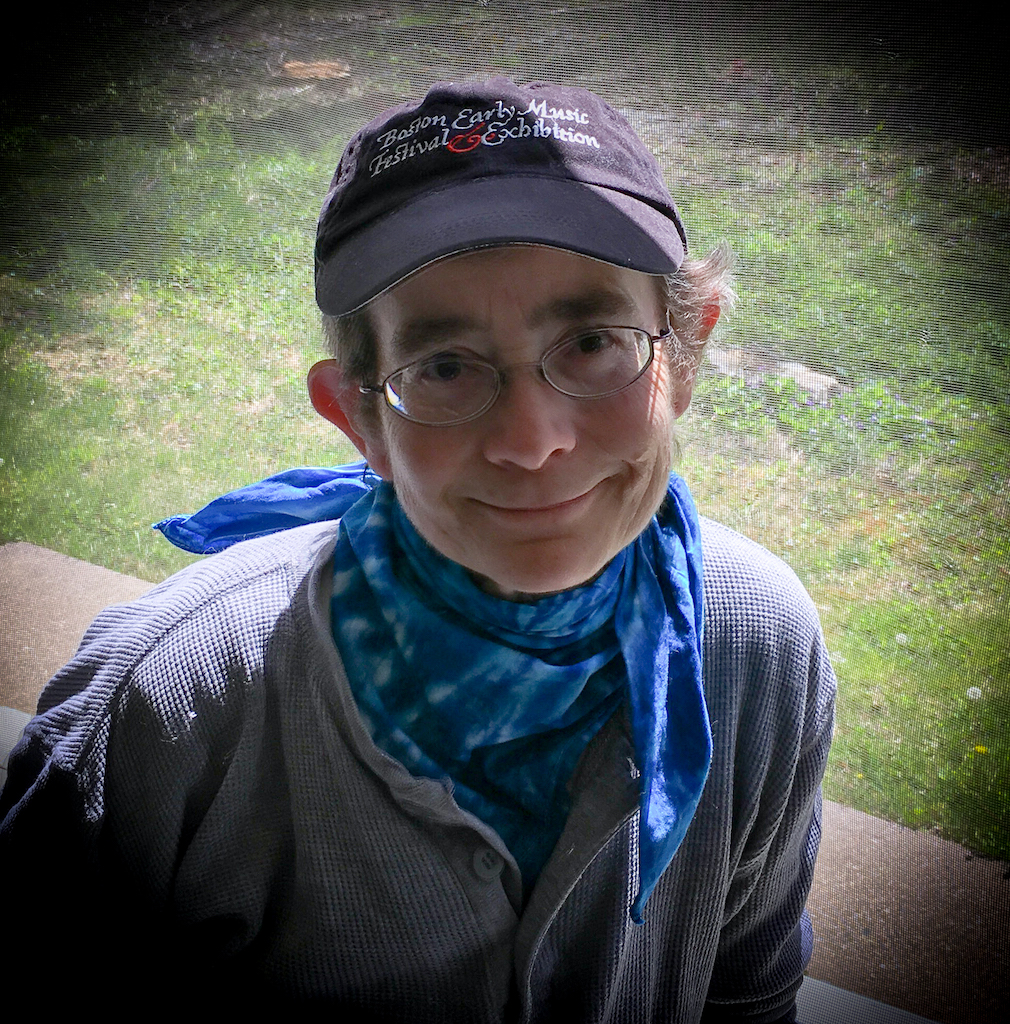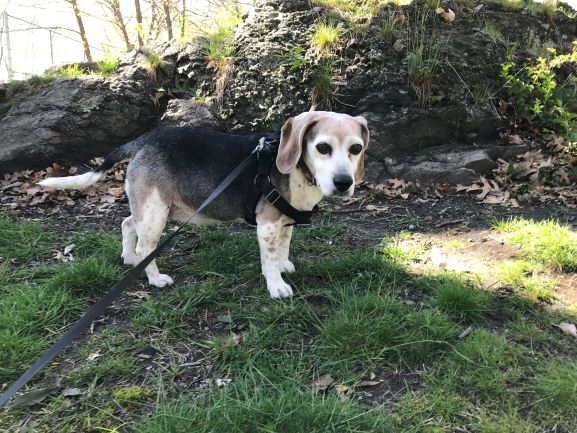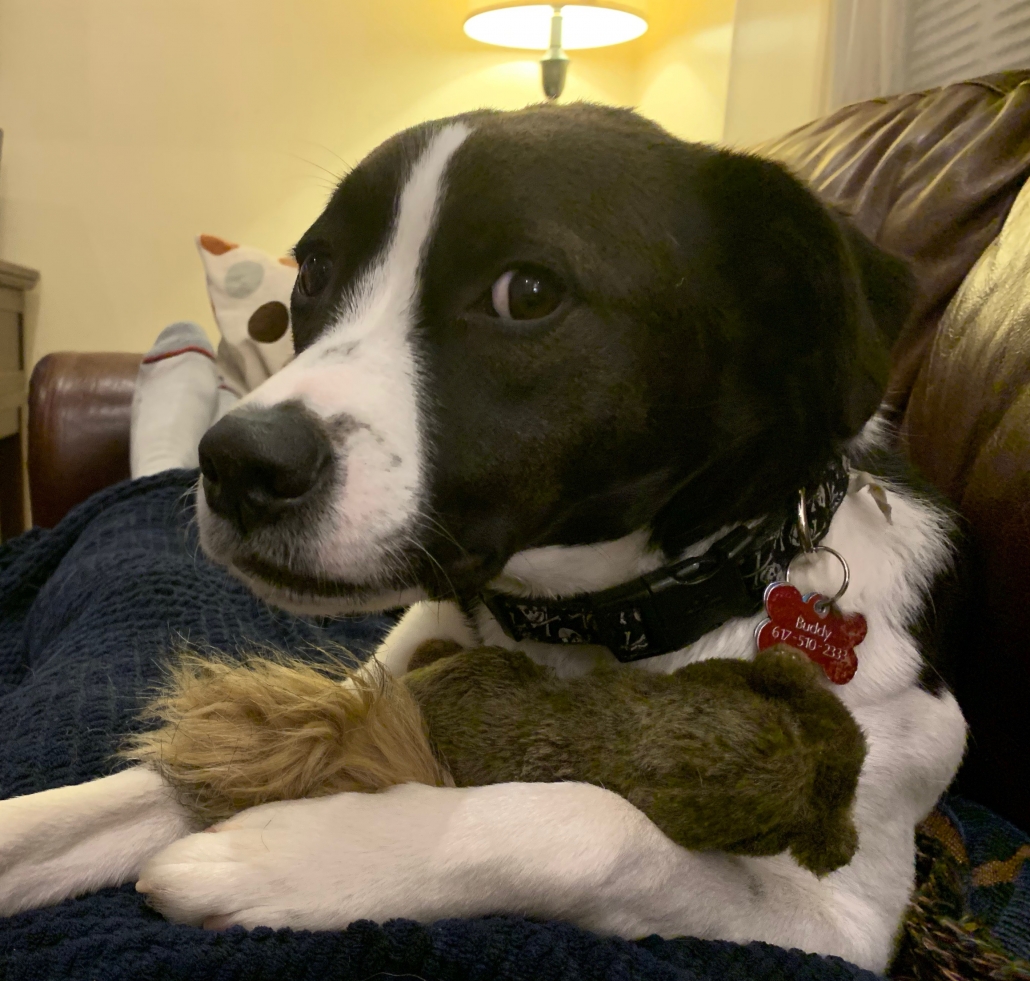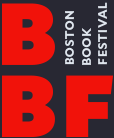At Home Boston: My Family is “Out” There and Other Boston Globe Selected Essays
Boston Book Festival has launched a community writing project to capture this moment in history. We asked residents to send us stories of their experiences during the pandemic, from the acts of kindness by neighbors to the challenges in our biggest hospitals. We wanted to hear it all from all corners of the city. The following stories have been featured in the Boston Globe.
We have been featuring stories on BBF’s Facebook and Instagram accounts, including the following selection of stories. Submissions will be accepted through June 30, 2020.
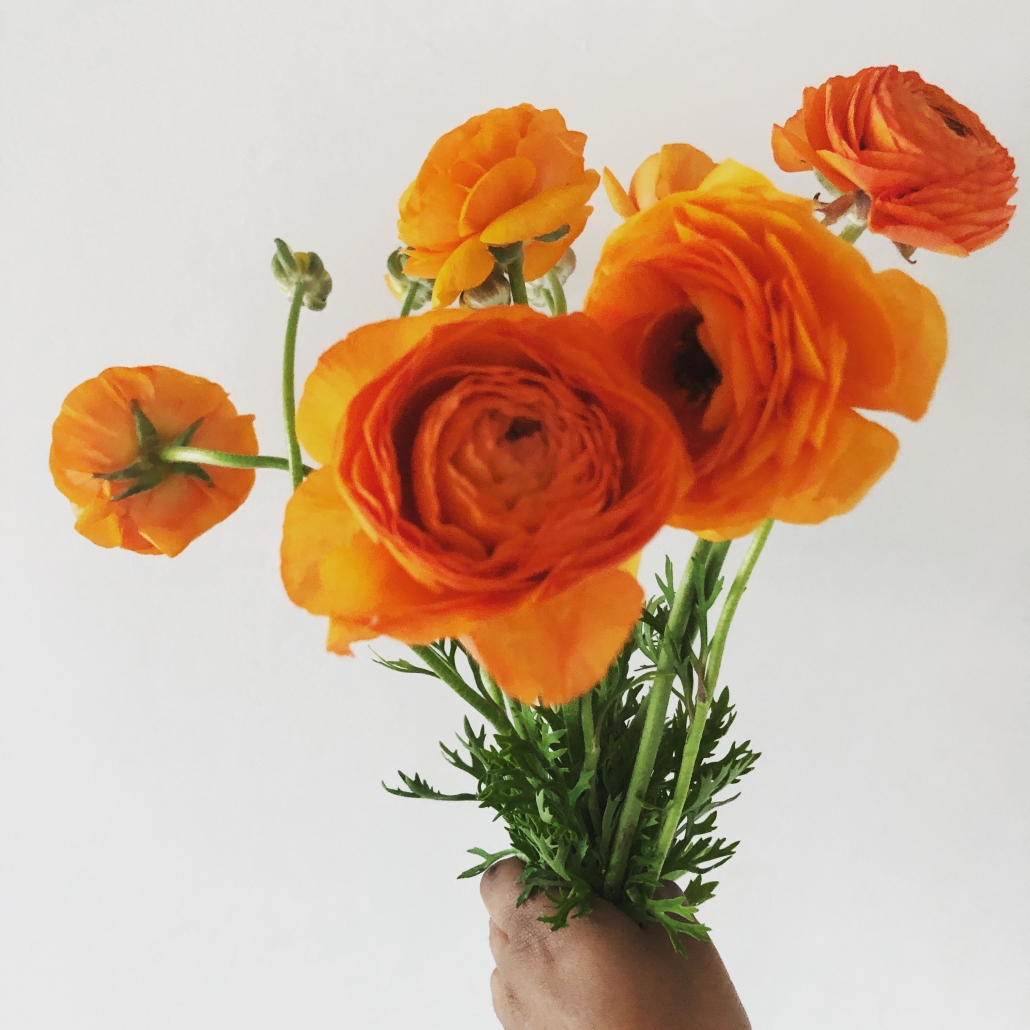
Nakia Hill, an author, educator, and journalist grasping on to joy.
My alarm sounds at 8:15 a.m. I open my eyes and take a deep breath. I wiggle my toes and move my legs. I do this religiously every morning. Today, marks day 74 of staying at home.
My mornings are filled with reading biblical scripture, meditation, breathing in the scents of a hanging eucalyptus branch in the shower, and making tea before I log into my computer to work. After an hour-and-a-half Zoom meeting, I decided to take a long walk to the post office and grab a fresh bouquet of burnt orange ranunculus flowers. I embrace the warm sun beaming on my face. I feel joy. I feel at peace.
I enter my apartment and excessively wash my hands and face. I pour a glass of iced kombucha. I sit at my table and look at the text message on my phone. My coworker writes that she is thinking of me during this difficult time. She must be referring to the Amy Cooper incident. I learn shortly that she is not.
I Google Minneapolis and see his name: George Floyd. And just like that a simple and beautiful day transitions into a day of sorrow.
~
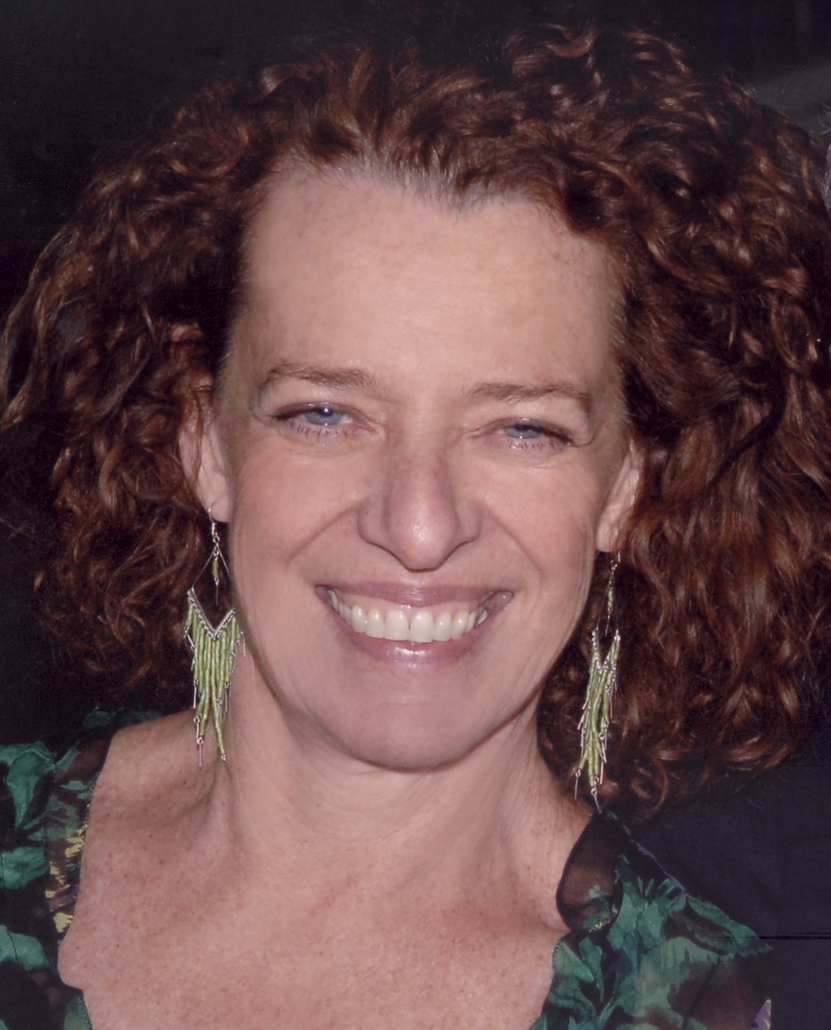
Nancy Taylor serves as the senior minister and CEO of Old South Church in Boston (gathered 1669).
It was a wobbly, yet solemn little procession: three masked mourners and a canine. Beginning in Kenmore Square, at David and Sue Horner’s condo, it proceeded up Commonwealth Avenue Mall.
S. Sue Horner died on Good Friday, April 10, in the Year of the Virus. Sue did not die of the virus but her parting was hemmed by it: no gatherings to mark the passing of this splendid human being.
David devised a send-off nevertheless. On April 23rd, accompanied by his daughter and son-in-law, he set out for Old South Church. David led, bearing the urn. His daughter came next, holding her phone aloft, speaker on, through which her brother in Illinois played the bagpipes for the length of the procession, its soaring thrum infusing the Mall. Her husband came last with Melon, their golden retriever.
I unlocked the empty church and led the procession into the columbarium. David drew the urn from its velvet cover, revealing a golden vessel inset with incandescent tiles. We lifted the urn into the niche, prayed, recited Psalm 23, and shared some words.
It was far too small for the luminous “Dr. Sue”, but what we could manage in the Year of the Virus.
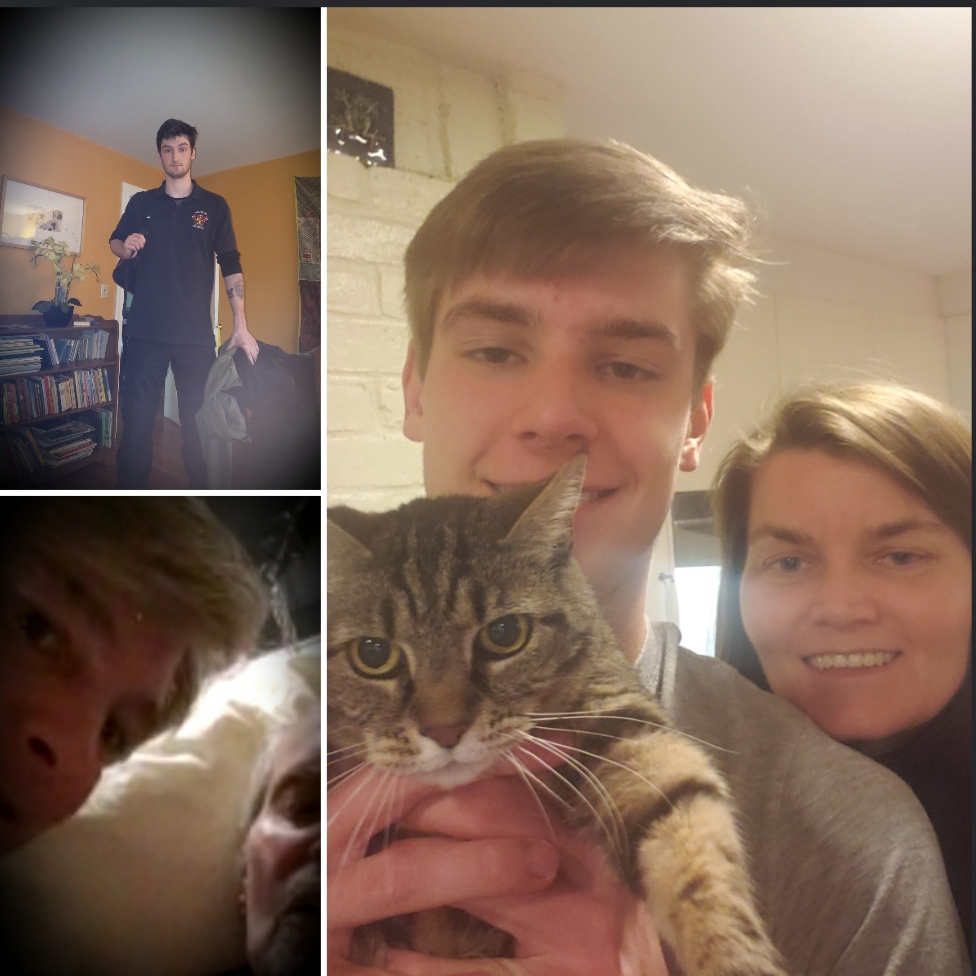
Lucia Thompson lives in Wayland.
On April 26, 2020, our household was a bustling home for four people. Our two sons, ages 18 and 22, have a lot of energy. We are among the lucky ones. I can work remotely. Our food and shelter are not at risk.
As I write this a week later, it is much quieter here.
On April 27, our older son, an EMT, transported a COVID-19 patient to the ER. He left home to protect my delicate health and became ill with the virus a week later.
On April 29, my husband’s 95-year-old father had a stroke. My husband left immediately to be with his 90-year-old mother near New York City and is now preparing for his father’s discharge from the hospital. Rehab people will come to the house; going to a facility would be too dangerous.
My husband just called me to describe today’s hospital visit. The doctors had warned that although his father had regained the ability to speak, he could only repeat what was said to him.
“It’s me,” said my husband.
“It’s me,” said my father-in-law.
“I love you,” said my husband.
“I love you,” said my father-in-law.
“Sooooooooo much,” said my father-in-law.
Onward.
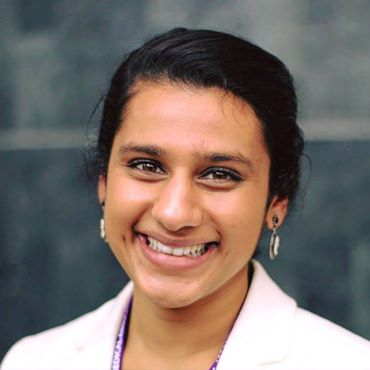
Barbara Anderson is 87 years old and is living in an assisted living facility.
My Family is “Out” There
But I am “in” here. Life is different now “in” Assisted Living since the deadly COVID-19 arrived. Now the staff, employees, and all 100 residents have our temperatures taken daily. Everyone else, including my family, is “out” there. People like the hairdresser are really missed — with long straight hair and masks, we don’t even recognize ourselves.
Since mid-March we are in quarantine “in” our rooms with meals served. Activities are practically non-existent. We can sit on the back patio 6 feet apart, wearing masks, do exercises there, chat, and walk nearby. Nothing inside. Hopefully June will improve.
My family is “out” there — somewhere! Most are working from home (or Montana). Hopefully an August wedding will happen, but unfortunately, I may still be “in” here.
From my window I wave to my son “out” there. Recently, when my daughter visited, I opened the window “in” my second-floor room and could see and hear her perfectly “out” there. Next time she will bring a chair so we can have an “in” and “out” conversation all day, or until we run out of words.
~
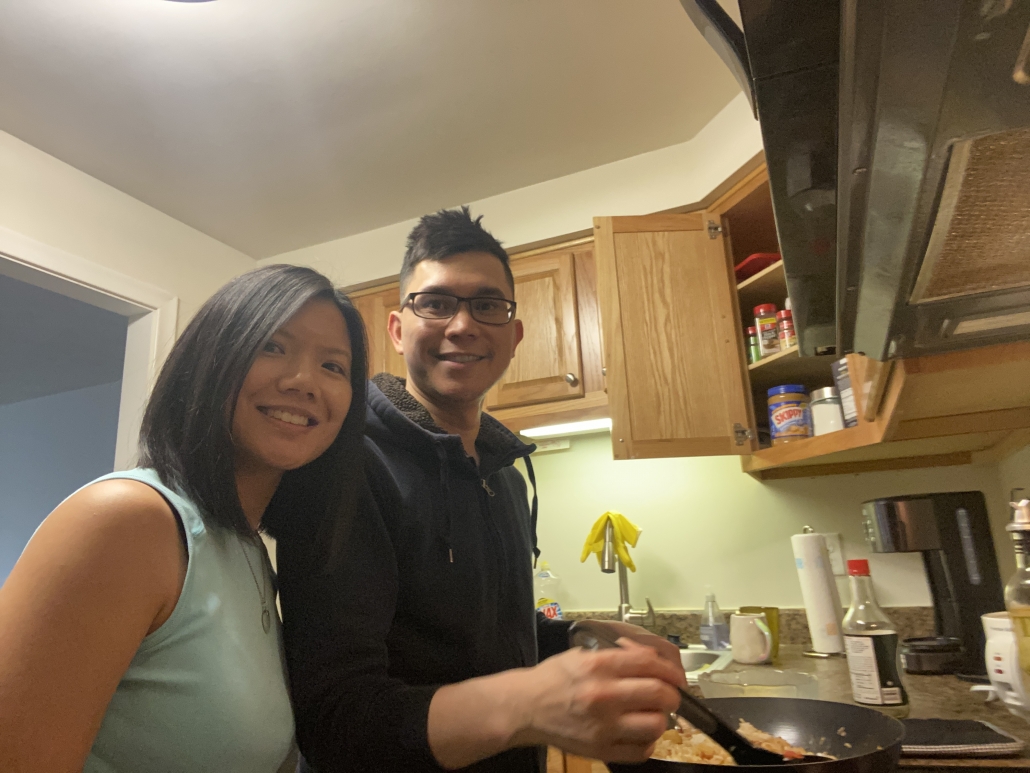
Melissa Lee is a writer eating her way through quarantine with her long-distance boyfriend.
My boyfriend Marcial lives in Boston, and I live in New York City. We had been doing the long-distance thing pretty successfully until coronavirus hit. In mid-March, I was furloughed from my temp job, Marcial began working remotely, and New York started shutting down. I went to Boston to stay with Marcial.
We are opposites in many ways, but we share a love of food. The kitchen has been the center of quarantine life —and also quarantine problems.
Marcial and I have gone from eating out and cooking/grocery shopping for each other during our periodic visits to cooking/grocery shopping with each other all the time. We’ve argued over things like the proper way to make rice and what greens to buy for salad. Our habits are deeply rooted in our upbringing and individual cultures (Filipino immigrant and American-born Chinese, hence the strong rice opinions).
On top of the mundane issues, we’ve also dealt with a flooded kitchen (resulting in cockroaches) and a mandoline accident leading to an ER visit. Marcial and I have spent quarantine navigating how to handle the unexpected and how to integrate our lifestyles. We’ve been eating well along the way.
~

Kirstan Barnett is a startup investor and the Founder of SheGive.
It’s 3 a.m. and my dog Rikki just gave me a worried look. Up again?
“I can’t sleep,” I say. I flick the light, pick up “Non-Zero Probabilities.” But the words lay pinned to the page like swatted flies. I watch new “Killing Eve” episodes, play old Nathaniel Rateliff and The Night Sweats songs. Still night.
We are — what? — 12 agitated weeks into lockdown, and now this. The thing that got me was Chauvin’s sunglasses. Perched nonchalantly on his head, undisturbed, as if he were at a backyard BBQ. Or anywhere other than kneeling on George Floyd’s neck, on his life. And Floyd was a father, as we all now know, having seen his daughter Gianna on Stephen Jackson’s shoulders saying “Daddy changed the world.”
Precious child. I pray, safeguard her.
Rikki has her own bed. But she won’t leave me. A Goddess of Protection. She does that thing dogs do, hovers increasingly closely the more agitated I get. “I’m losing it,” I say. I know. And like those weighted gravity blankets meant to encourage sleep, she drapes her 70 pounds over me, covering my restless heart with safety.
As if daybreak, or a prayer, could bring peace today.
Tell us your story about these unprecedented times in less than 200 words. Read more about BBF’s At Home Boston community writing project, in partnership with the Boston Globe.
Follow Boston Book Festiva’s At Home Boston project on Twitter, Instagram, and Facebook. Share these stories using the hashtag #athomeboston.
Read more At Home Boston stories:
